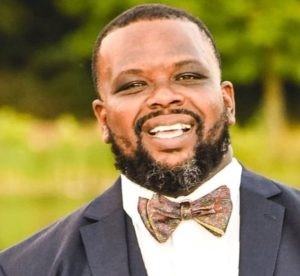Two new grants from the National Science Foundation’s Build and Broaden 2.0 program will help connect faculty from a diverse set of institutions and build critical infrastructure. These research partnerships will facilitate data collection and analysis of both the role of organizations and social movements on politics and policy as well as study the relationship between COVID-19 and Black trauma.
Najja K. Baptist, assistant professor of political science and African American studies at the U of A, helped secure the $1.63 million in National Science Foundation grants. NSF’s Build and Broaden 2.0 program encourages research collaborations between scholars at minority-serving institutions and scholars in other institutions or organizations.
The larger grant, titled Transformative American Politics: Examining the role of organizations and movements in reshaping politics and policymaking, awards $1.16 million over four years. This grant is a collaborative effort among the U of A, Howard University, North Carolina Central University, Georgia State University and Emory University.
Transformative American Politics will examine two broad questions: first, how do organizations and social movements mediate political preferences and policy agendas among the mass public? And second, how does the collaboration and interaction between organizations and social movements shape traditional and nontraditional forms of political participation?
In answering these questions, Baptist and his colleagues also hope to “build a network, and supportive infrastructure, to better understand how political elites, organizations and movements in key political locations work to drive participation, preferences and policymaking.” Baptist will serve as the principal investigator. Grant money will be used to hire and train students as researchers. Additionally, Baptist anticipates this research experience and partnership will help create a pipeline to graduate programs for participating students.
The second grant, titled The Intersection of Race, Mental Health, and Politics, is $509,767. This one-year grant is a collaborative effort with the U of A, Jackson State University, University of Michigan and Mississippi Valley State University. This grant examines the relationship between COVID-19 and Black trauma and will include qualitative interviews throughout the south about the Black political experience. Baptist will serve as director of research at the U of A and is the university’s primary consultant for the overall project.
“Receiving these prestigious grants is the manifestation of prayers and dedication,” Baptist said. “Five years ago, as a doctoral student at Howard University, these projects were distant dreams. The primary goal was to give back to the mentors and institutions that poured into me throughout my academic career. As a result of this project, we have the opportunity to connect outstanding scholars from historically Black colleges and universities and historically white colleges and universities.”
Baptist added that he and his colleagues were able to find gaps in the literature and create innovative data collection techniques. “Our mobile response teams will allow students to gain advanced research training. Also, there will be junior and senior faculty collaborative publications with students. More broadly, our research will provide a more comprehensive view of American citizenship. I want to thank Bishop C.M. Bailey for his continued prayers and encouragement, as well as my colleagues in the Diane Blair Center at the University of Arkansas.”
Baptist joined the faculty at the U of A in 2019 and received his Ph.D. in political science from Howard University in 2020. His work primarily focuses on Black politics, social movements, culture, political behavior, public opinion and mass media in the United States.
The NSF’s Build and Broaden 2.0 program was created to broaden participation of minority-serving institutions (MSIs), particularly within the social, behavioral and economic sciences. According to the NSF’s website, the Build and Broaden 2.0 program is designed “to increase proposal submissions, advance research collaborations and networks involving MSI scholars, and support research activities in the SBE sciences at MSIs.”
About the University of Arkansas: As Arkansas' flagship institution, the U of A provides an internationally competitive education in more than 200 academic programs. Founded in 1871, the U of A contributes more than $2.2 billion to Arkansas’ economy through the teaching of new knowledge and skills, entrepreneurship and job development, discovery through research and creative activity while also providing training for professional disciplines. The Carnegie Foundation classifies the U of A among the top 3% of U.S. colleges and universities with the highest level of research activity. U.S. News & World Report ranks the U of A among the top public universities in the nation. See how the U of A works to build a better world at Arkansas Research News.
Topics
Contacts
Najja K. Baptist, assistant professor
Department of Political Science
479-575-8492, nbaptist@uark.edu
Hardin Young, assistant director of research communications
University Relations
479-575-6850,
hyoung@uark.edu
